Preservation Opportunities & Awards
PHLF: Focus Tour of Children’s Museum and MuseumLab

Saturday, July 26
10:00 am – 11:30 am
$25 per person
This tour is limited to 20 participants.
Tickets will not be available after 11:30 pm on July 25.
Here’s a recipe for a scrumptious architectural experience: Take one 19th-century Renaissance Revival-style U.S. Post Office building. Add a disused planetarium in the “stripped classicism” of the 1930s, when it was built.
To bind them, mix in a contemporary building sheathed in thousands of plastic squares that sing when the wind blows. Top off the assemblage by re-purposing a beloved 1880s library building constructed by one of Pittsburgh’s great industrialists, leaving visible all vestiges of the building’s past lives.
What do you get? A feast for the visual palate that will stick in your memory long after you leave this extraordinary collection of buildings that comprise the largest cultural campus for children in the United States.
PHLF: Focus Tour of Two Landmark Churches
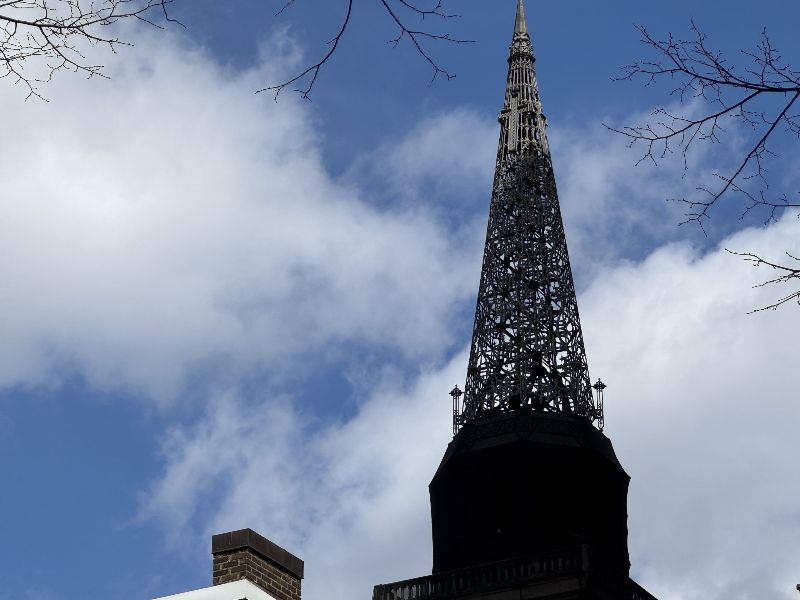
First English Evangelical Lutheran Church and Smithfield United Church of Christ
Friday, July 18
10:00 am – Noon
$25 per person
This tour is limited to 20 participants.
Tickets will not be available after 11:30 pm on July 17.
First English Evangelical Lutheran Church and Smithfield United Church of Christ seem to hail from different architectural universes. The modest scale and sturdy demeanor of First Lutheran (Andrew Peebles, dedicated 1888) call to mind an English country church.
In contrast, Smithfield United (Henry Hornbostel, dedicated 1927) feels more attuned to the tall buildings that had been rising in Pittsburgh since the 1890s. With good reason: it’s built on a steel frame, and its unusually airy steeple is constructed of aluminum, a quintessentially modern material. The churches’ interiors draw attention and encourage contemplation in equally distinctive ways, with exquisite artistry in wood, stained glass, and mosaic.
PHLF: Town Meets Gown in Washington, Pennsylvania
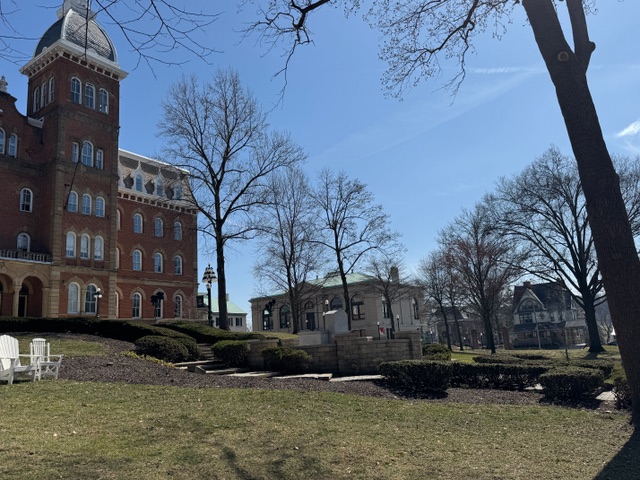
Saturday, May 31
10:00 am to Noon
$25 per person
This tour is limited to 20 participants.
Located about 30 miles southwest of Pittsburgh, the city of Washington, PA is perhaps best known as a key site in the Whiskey Rebellion in the 1790s and as the home of Washington & Jefferson College.
It also is the seat of Washington County—the first county in America to bear the president’s name—and the home of the country’s first National Historic Landmark of the Underground Railroad. Our tour will take in a bit of both town and gown, starting with a handful of Washington & Jefferson College’s most historic buildings.
On walking to downtown Washington, we will visit, among other buildings, the LeMoyne House of 1812 and the George Washington Hotel—designated a Historic Hotel of America by the National Trust for Historic Preservation for “faithfully maintaining its historic integrity, architecture, and ambiance.”
You will leave Washington with a new appreciation of this city on the National Road, America’s first highway constructed, beginning in 1811, entirely with federal funds.
PHLF: Antique Skyscrapers

Fancy a Tour of Antique Skyscrapers?
Pittsburgh author Mark Houser will offer tours of four historic skyscrapers on Mother’s Day weekend, Saturday May 10 and Sunday May 11.
Get high above the Golden Triangle and ascend to the top of four antique skyscrapers!
- Koppers Building – See all the way to Oakland from the 29th floor balcony of this 1929 Art Deco gem.
- Frick Building – Get a close-up view of the courthouse tower from the balcony of Henry Clay Frick’s rooftop Union Club.
- Oliver Building – Admire the intricate Beaux-Arts cornice by famous Chicago architect Daniel Burnham.
- Kaufmann’s Grand – Sweeping 360-degree vistas featuring the city’s very first skyscrapers.
At each stop on this Downtown walking tour, you’ll discover new views and perspectives while you hear entertaining and surprising stories about the people behind the buildings. Discover how they made their fortunes and left behind legacies in stone and steel for us to appreciate today.
Tours at 10:00 am, 1:00 pm and 4:00 pm both Saturday and Sunday.
PHLF: Preservation Month
Happy Preservation Month!
In May, we celebrate historic preservation because of its ability to improve the quality of the lives of people through saving buildings and places that are not only an important part of our cultural heritage, but can be the basis of helping renew communities for the future.
But even as we celebrate this National Preservation Month, our organization is concerned about the ongoing dismantling of federal historic preservation programs, and other support services that are vital to our socio-cultural life.
We have seen this in the decimation of funding for community development incentives, institutions of higher learning, libraries, museums, national parks, and public broadcasting. The loss of funding for these programs collectively affects all of us, including the preservation community.
Here in Pittsburgh, we have seen partner organizations including the Phipps Conservatory and Botanical Gardens, the Carnegie Library of Homestead, and the Society to Preserve the Millvale Murals of Maxo Vanka at St. Nicholas Church in Millvale— to name but a few— targeted for loss of critical funding that was dedicated to substantive historic preservation work.
Over the years, our organization has been intimately involved not only with these three organizations but many others caught up in this hollowing out of the capacity of non-profit organizations dedicated to improving the lives of people.
Our organization opposes these measures and we will continue to seek partnerships with other organizations, donors, members and friends, who, like us, believe that renewing communities and building pride is an important part of saving our city and region’s distinctive built environment— both because of its history and adaptation for use in the future.

PHLF: Landmarks Scholarship Program
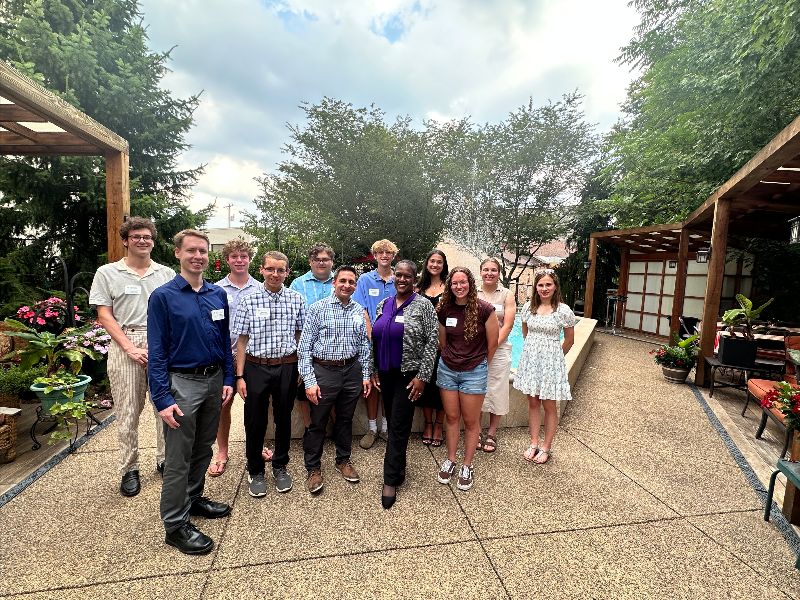
Our organization is now accepting applications for our Landmarks Scholarship for high-achieving, community-minded, high school seniors in Allegheny County who will be attending college or university in the fall of 2025.
The deadline to apply is Tuesday, April 15, 2025.
Click here to download the application.
As part of the Landmarks Scholarship application, students are asked to describe in an essay a place in Allegheny County especially important in their lives; these essays–all archived at PHLF–show how our scholarship program has helped future preservationists, architects, designers, and planners realize their career dreams and remain connected to the Pittsburgh region.
This program is funded in part by support from the Brashear Family Fund and the Landmarks Scholarship Fund, including donations to the 2008 and 2014 Scholarship Celebrations, and from the Russell W. Coe Preservation Fund at PHLF.
The award of $6,000 is payable over four years to the recipient’s college or university, to be used for book and tuition expenses only.
PHLF: Fourth Avenue Historic District Walking Tour
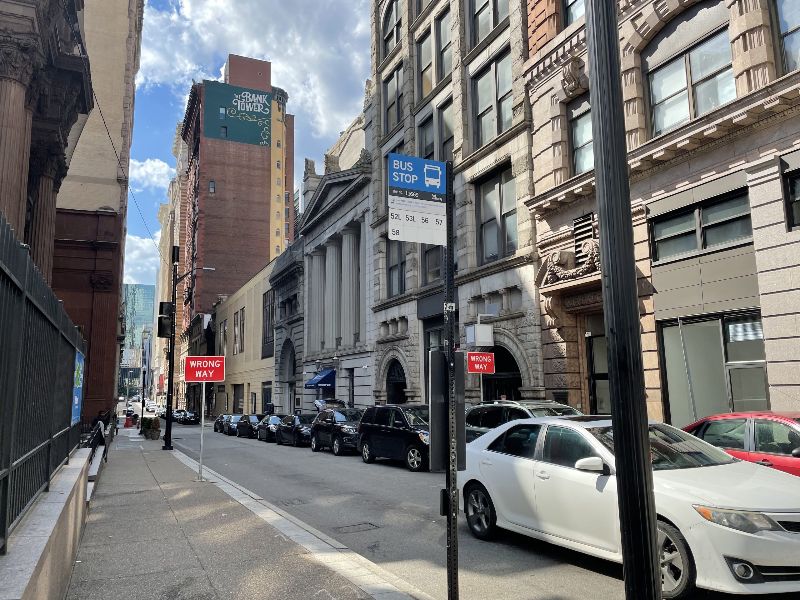
Friday, October 18
10:00 am to 11:15 am
$20.00 per person
This tour is limited to 20 participants.
Tickets will not be available after 11:30 pm on October 17.
Click here to purchase a ticket.
The Fourth Avenue Historic District encompasses a remarkable variety of buildings. From a Greek Revival building of 1836, to cast-iron-front structures of the 1870s and 1880s, to a majestic quartet of early-20th-century skyscrapers, the district includes distinguished structures designed by more than a dozen eminent Pittsburgh architects.
The tour focuses on the portion of the District once known as “Pittsburgh’s Wall Street” for its concentration of buildings that served the financial and investment industries. We also will see how old buildings are being re-purposed for contemporary uses and explore PPG Place—the postmodernist “cathedral of commerce” that brings full circle the fascinating story of this narrow but mightily impressive street.
PHLF: Walking Tour of Strip Historic District
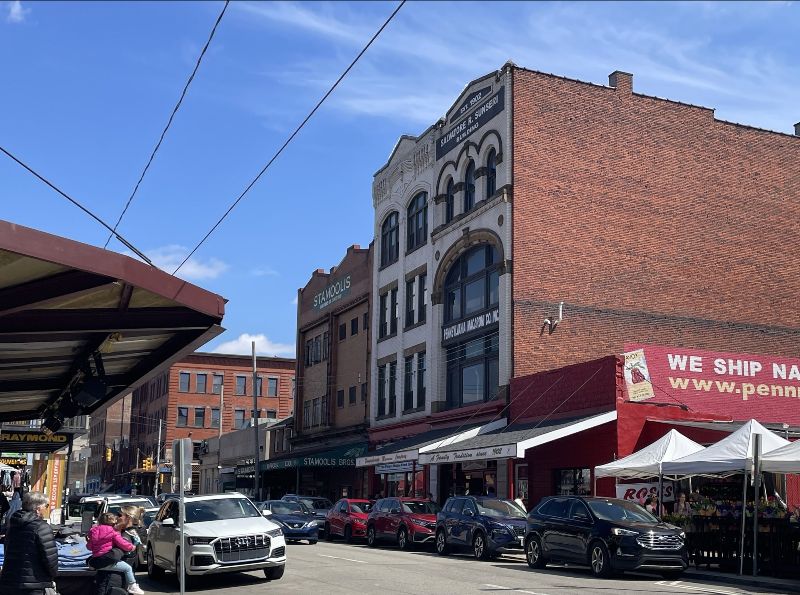
Saturday, September 21
10:00 am to 12:00 (noon)
$20.00 per person
This tour is limited to 20 participants.
Tickets will not be available after 11:30 pm on September 20.
Click here to purchase a ticket.
The Strip District is a vibrant amalgamation of Pittsburgh’s past, present, and imagined future. It is probably best known locally for food sellers and other businesses that reflect the neighborhood’s long immigrant history. In its 200-plus-year history, however, the Strip has been a site of industry, the region’s wholesale produce distribution hub, a center for nighttime entertainment, and, most recently, a home to Pittsburgh’s flourishing technology sector. The Strip’s ongoing evolution and changing demographics are mirrored in the architecture in this sprawling neighborhood.
The tour focuses on the Strip Historic District, which extends from 15th Street to 22nd Street, between Liberty Avenue and Railroad Avenue. Preservation and repurposing of historic buildings have been key to revitalization of the Strip in the last 20 years, and we will see how the mix of old and new — sometimes in the same structure — has brought renewed life to one of Pittsburgh’s most distinctive neighborhoods.
PHLF: Walking Tour of Bridges and River Shores
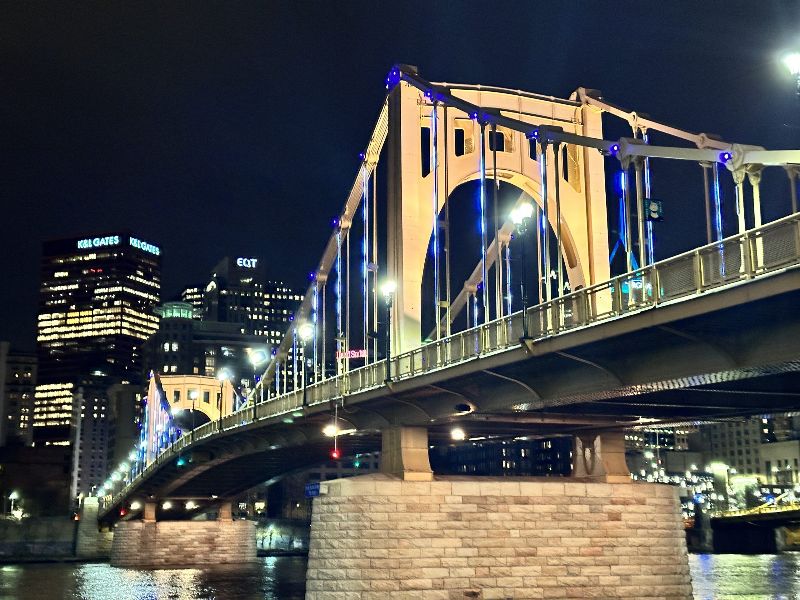
Friday, September 20
10:00 am to 11:15 aam
$20.00 per person
This tour is limited to 20 participants.
Tickets will not be available after 11:30 pm on September 19.
Click here to purchase a ticket.
Pittsburgh is a city of bridges: hundreds of them span our waterways, valleys, and ravines. Bridges offer changing vistas on the natural and manmade features of the cityscape, and in Pittsburgh, these works of artful engineering are a source of civic pride.
This tour takes us on a loop bounded by the north and south shores of the Allegheny River and by two of the Three Sisters bridges that cross it. Taking in public art and historic buildings along with bridges and the river, this tour reveals the dynamic relationship between humans and nature that characterizes much of the Pittsburgh region.
PHLF: Walking Tour of Vandergrift
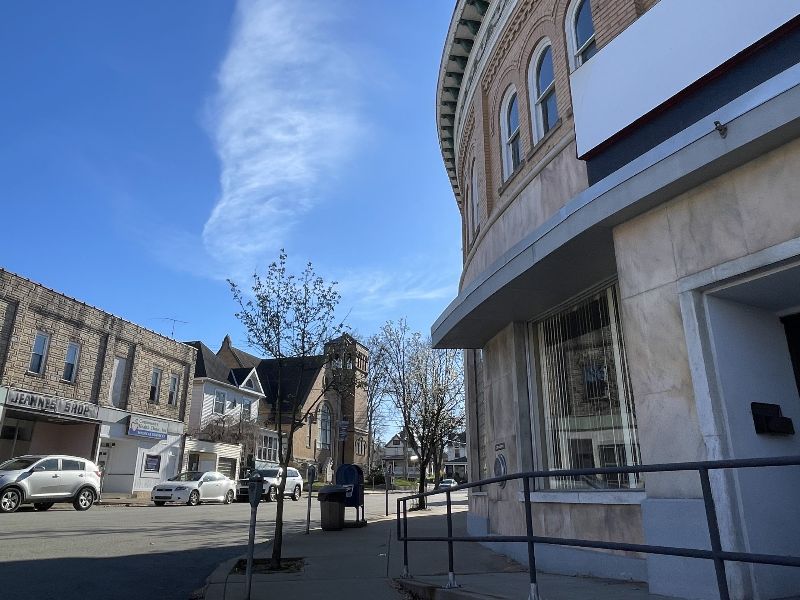
Saturday, August 24
1:00 pm to 3:00 pm
$20.00 per person
This tour is limited to 20 participants.
Tickets will not be available after 11:30 pm on August 23.
Click here to purchase a ticket.
For as long as there has been industry in the United States, there have been company towns—that is, communities built by businesses. While many of the roughly 2,000 such towns built across the country were known for their abysmal conditions, Vandergrift, stands out for its exceptional history and design.
George G. McMurtry, who was president of Apollo Iron & Steel Co. and established the town in 1895, believed that good housing and a pleasant environment would ensure his workers’ loyalty and increase their productivity. To create a plan for “something better than the best,” as McMurtry described it, he hired the famed Olmsted family of landscape designers.
Join us to learn how the layout designed by Frederick Law Olmsted’s firm responded to both the landscape and McMurtry’s goals.
This tour will include insights from local business figures and residents of the community, leading us through this unique company town and discussing efforts to revive both the economy and community spirit.
The tour will wrap up at a new local winery built in a restored church.
